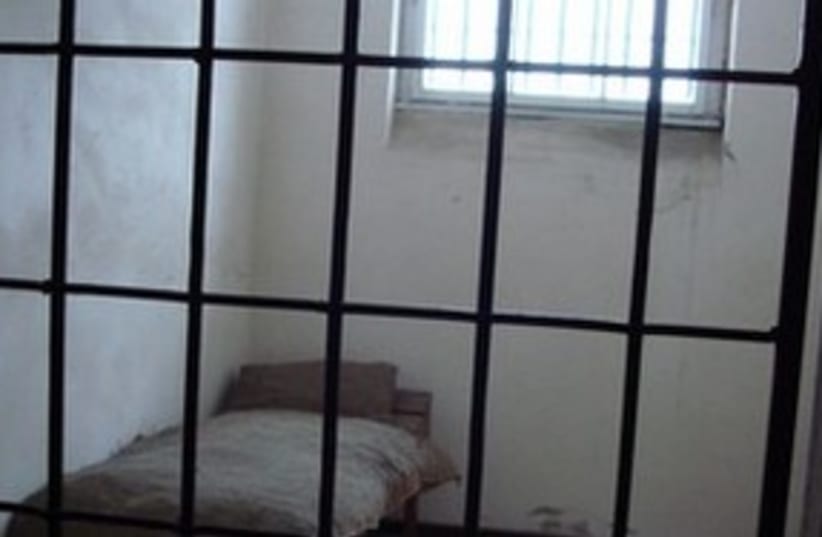RELATED:Yair Klein lands in Israel: 'This is a great feeling''Yair Klein out of Russian jail and on way to Israel'The Colombian government asked Russia to extradite Klein. The government agreed to do so and the Russian courts, in a series of rulings, upheld the decision despite appeals by Klein’s lawyers, including his Israeli attorney, Mordechai Tzivin.Tzivin appealed the final decision of the Russian Supreme Court in May 2008 to the European Court of Human Rights, arguing that Russia had not taken into account the poor state of human rights in Colombia at the time, as well as a threat by former Colombian vice president Francisco Santos, that Klein would “rot in jail” after his return to Colombia.The human rights court, in April of this year, forbade Russia from extraditing Klein to Colombia. Russia appealed the decision, but the appeal was denied last month.On Sunday, in a telephone conversation with The Jerusalem Post, Klein said his entire relationship with Colombia was approved by the Israeli and Colombian governments.Klein said that in 1988 he was sent by the Israeli Defense Ministry to help protect the organization of banana growers in Colombia at the request of the Colombian government.Before he had time to take action, he said, the organization was destroyed. He told the Post that in the meantime, however, he was asked by the Colombian government to help train FARC, the left-wing Revolutionary Armed Forces of Colombia.Klein indicated that there was a conspiracy involving senior government officials who were cooperating with FARC. He also claimed that FARC fought against the drug cartels in Colombia.Klein told the Post that if the Colombian government persisted in its efforts to force him to return to Columbia, he would blow the whistle on officials in the current and previous Columbian governments.“What I have on these officials is fantastic,” he said.Meanwhile, Tzivin said that for the past month, ever since the European Court of Human Rights prohibited Russia from extraditing Klein, the public, the media and the government in Colombia have been preoccupied with what illegal activities Klein might divulge about Colombian political and military leaders.Presumably in an effort to persuade the Colombian government to drop the affair, Tzivin told the Post, “My client has information that could cause political shockwaves in the senior echelons of the current and previous Colombian governments.If exposed, the information could lead to dismissals in the government and the arrest of past and present political and military figures.“I recommended to my client not to publish the information so as not to cause chaos, since Colombia is now significantly improving the state of human rights in the country.”
Yair Klein threatens to blow whistle on Colombian gov't
"What I have on these officials is fantastic," Klein says; Justice Ministry says it does not plan to take any action in former IDF officer's case.

RELATED:Yair Klein lands in Israel: 'This is a great feeling''Yair Klein out of Russian jail and on way to Israel'The Colombian government asked Russia to extradite Klein. The government agreed to do so and the Russian courts, in a series of rulings, upheld the decision despite appeals by Klein’s lawyers, including his Israeli attorney, Mordechai Tzivin.Tzivin appealed the final decision of the Russian Supreme Court in May 2008 to the European Court of Human Rights, arguing that Russia had not taken into account the poor state of human rights in Colombia at the time, as well as a threat by former Colombian vice president Francisco Santos, that Klein would “rot in jail” after his return to Colombia.The human rights court, in April of this year, forbade Russia from extraditing Klein to Colombia. Russia appealed the decision, but the appeal was denied last month.On Sunday, in a telephone conversation with The Jerusalem Post, Klein said his entire relationship with Colombia was approved by the Israeli and Colombian governments.Klein said that in 1988 he was sent by the Israeli Defense Ministry to help protect the organization of banana growers in Colombia at the request of the Colombian government.Before he had time to take action, he said, the organization was destroyed. He told the Post that in the meantime, however, he was asked by the Colombian government to help train FARC, the left-wing Revolutionary Armed Forces of Colombia.Klein indicated that there was a conspiracy involving senior government officials who were cooperating with FARC. He also claimed that FARC fought against the drug cartels in Colombia.Klein told the Post that if the Colombian government persisted in its efforts to force him to return to Columbia, he would blow the whistle on officials in the current and previous Columbian governments.“What I have on these officials is fantastic,” he said.Meanwhile, Tzivin said that for the past month, ever since the European Court of Human Rights prohibited Russia from extraditing Klein, the public, the media and the government in Colombia have been preoccupied with what illegal activities Klein might divulge about Colombian political and military leaders.Presumably in an effort to persuade the Colombian government to drop the affair, Tzivin told the Post, “My client has information that could cause political shockwaves in the senior echelons of the current and previous Colombian governments.If exposed, the information could lead to dismissals in the government and the arrest of past and present political and military figures.“I recommended to my client not to publish the information so as not to cause chaos, since Colombia is now significantly improving the state of human rights in the country.”